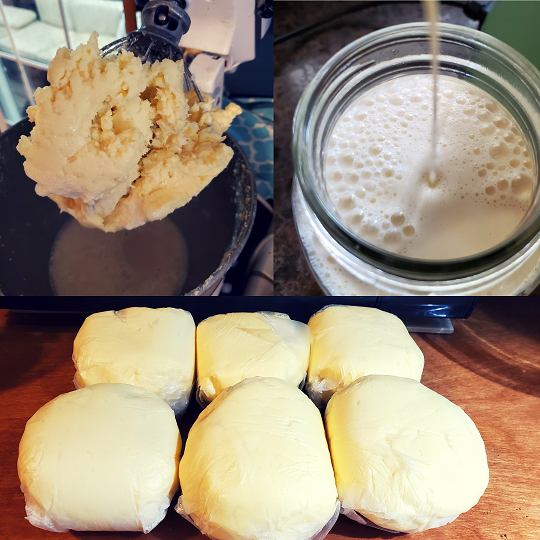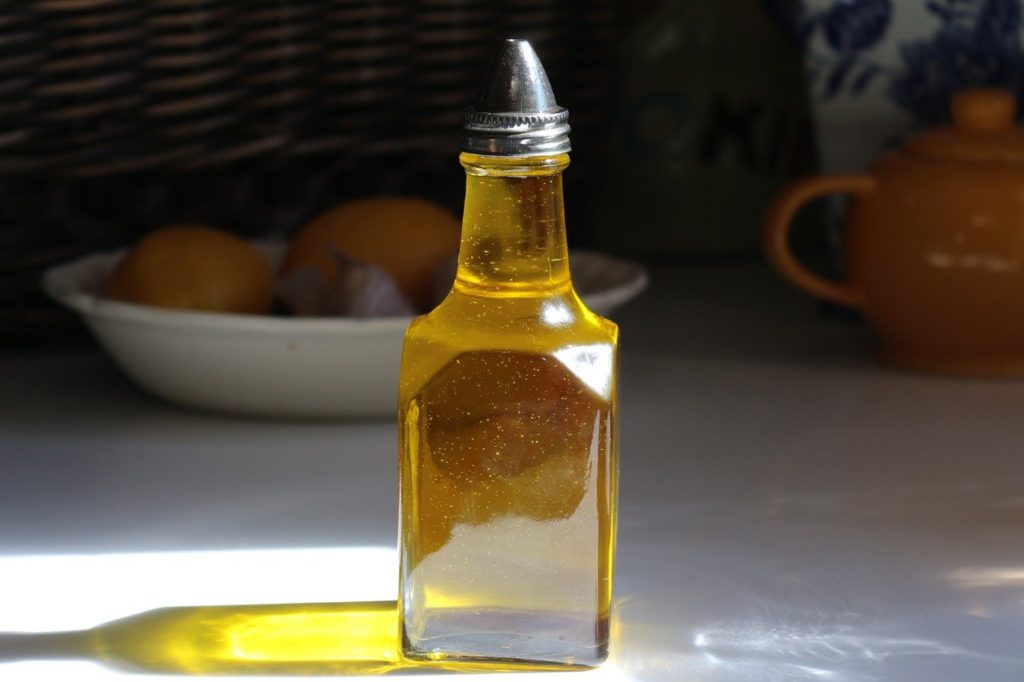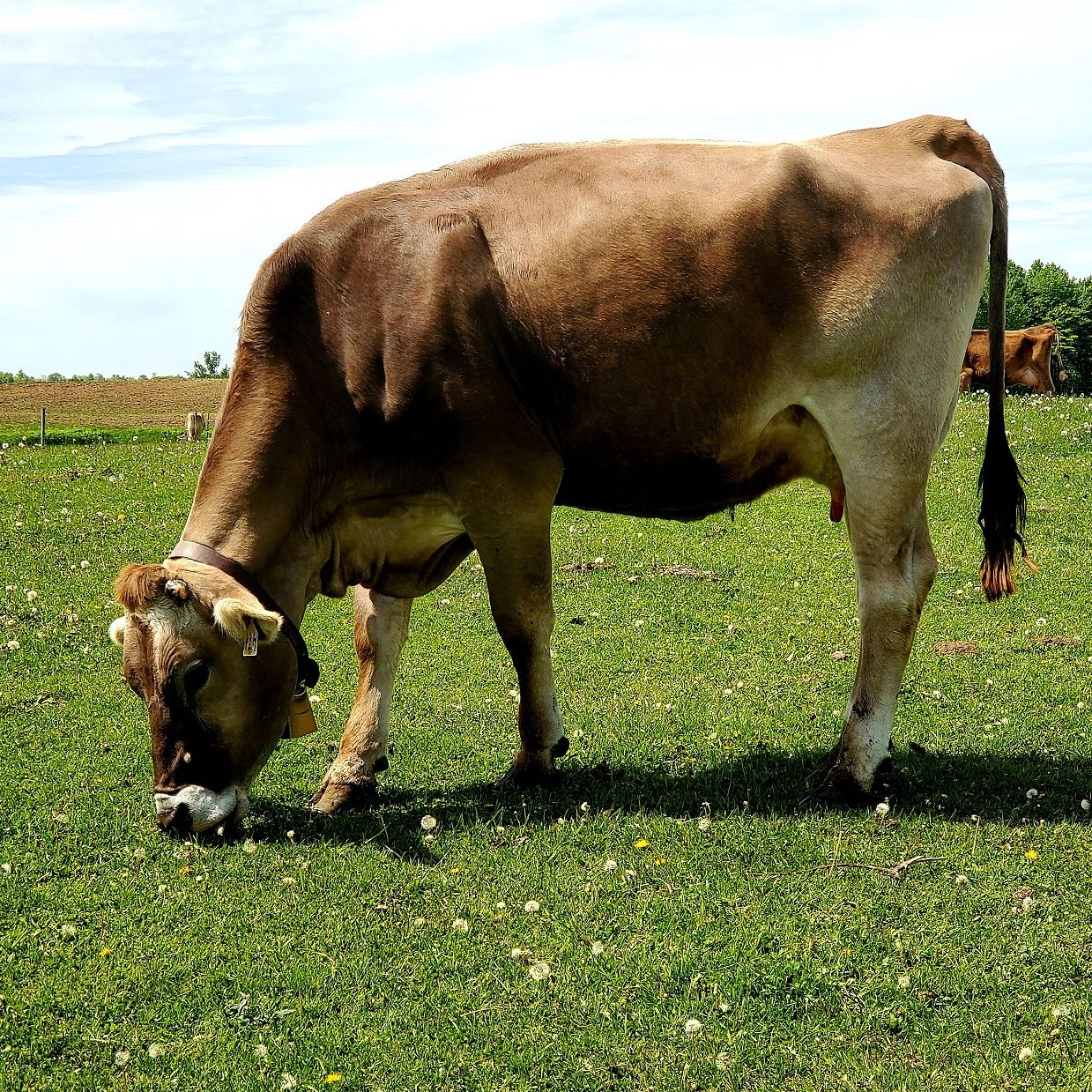We began our journey with the Weston A. Price Foundation (WAPF) as a way to promote our herdshare program.
We were researching how to best reach potential herdshare members, and we discovered that WAPF has a website specifically designed to connect raw milk seeking consumers with raw milk farmers. We immediately knew we wanted to be a part of it! You can check their site out- RealMilk.com

What we also didn’t know, is how much we would learn.
Instead of writing a biography for the foundation and Dr. Price, here is a link to more information if you’d like to dig deeper: Weston A. Price Foundation Website He also wrote ‘Nutrition and Physical Degeneration‘, and I highly recommend it!
And a short intro:
‘Dr.Weston A. Price (1870-1948), a Cleveland dentist, has been called the “Isaac Newton of Nutrition.” In his search for the causes of dental decay and physical degeneration that he observed in his dental practice, he turned from test tubes and microscopes to unstudied evidence among human beings. Dr. Price sought the factors responsible for fine teeth among the people who had them- the isolated “primitives.”’
Price traveled the world over in order to study isolated human groups, including sequestered villages in Switzerland, Gaelic communities in the Outer Hebrides, Eskimos and Indians of North America, Melanesian and Polynesian South Sea Islanders, African tribes, Australian Aborigines, New Zealand Maori and the Indians of South America. Wherever he went, Dr. Price found that beautiful straight teeth, freedom from decay, stalwart bodies, resistance to disease and fine characters were typical of native people on their traditional diets, rich in essential food factors.
WAPF website

Dietary (and lifestyle) principles were developed based on Dr. Price’s research, and are taught by the WAPF through books, their website, the Wise Traditions Podcast, and other publications.
They are:
Eat whole, unprocessed foods.
Eat beef, lamb, game, organ meats, poultry and eggs from pasture-fed animals.
Eat wild fish (not farm-raised), fish eggs and shellfish from unpolluted waters.
Eat full-fat milk products from pasture-fed cows, preferably raw and/or fermented, such as raw milk, whole yogurt, kefir, cultured butter, full-fat raw cheeses and fresh and sour cream.
Use animal fats, such as lard, tallow, egg yolks, cream and butter liberally.
Use only traditional vegetable oils—extra virgin olive oil, expeller-expressed sesame oil, small amounts of expeller-expressed flax oil, and the tropical oils—coconut oil, palm oil and palm kernel oil.
Take cod liver oil regularly to provide at least 10,000 IU vitamin A and 1,000 IU vitamin D per day.
Eat fresh fruits and vegetables, preferably organic. Use vegetables in salads and soups, or lightly steamed with butter.
Use whole grains, legumes and nuts that have been prepared by soaking, sprouting or sour leavening to neutralize phytic acid, enzyme inhibitors and other anti-nutrients.
Include enzyme-rich lacto-fermented vegetables, fruits, beverages and condiments in your diet on a regular basis.
Prepare homemade stocks from the bones of pastured chicken, beef and lamb fed non-GMO feed, and wild fish, and use liberally in soups, stews, gravies and sauces.
Use filtered water for cooking and drinking.
Use unrefined salt and a variety of herbs and spices for food interest and appetite stimulation.
Make your own salad dressing using raw vinegar, extra virgin olive oil and a small amount of expeller-expressed flax oil.
Use traditional sweeteners in moderation, such as raw honey, maple syrup, maple sugar, date sugar, dehydrated cane sugar juice (sold as Rapadura) and stevia powder.
Use only unpasteurized wine or beer in strict moderation with meals.
Cook only in stainless steel, cast iron, glass or good quality enamel.
Use only natural, food-based supplements.
Get plenty of sleep, exercise and natural light.
Think positive thoughts and practice forgiveness.
JILL NIENHISER, WAPF Website, ‘Dietary Guidelines’- JANUARY 1, 2000

That is a lot to take in and try to implement, especially with a household of picky eaters. We are still working to perfect our routine, and we are definitely not strict about it, we just do our best. In this series of articles, we will share recipes and techniques that have helped us get a bit closer to what the foundation recommends.
I thought I would start with what I feel is one of the most important parts of this whole philosophy, and that is, get the fats right! Quit using margarine, oleo, vegetable oils, seed oils and Crisco. If you have any of those items in your pantry, throw them out.
If you want to go WAY into the weeds, I can’t say it any better than they do here: Good Fats, Bad Fats: Separating Fact from Fiction

Here’s my version- if the fat wasn’t available 200 years ago, don’t eat it now. That means refined (chemically extracted) vegetable or seed oils that could not be obtained back then, or Crisco which exists no where in nature. Hydrogenated oils, and trans-fats are to be avoided as much as humanly possible- and they are EVERYWHERE. Look at your box of pancake mix, probably in there- and here’s a bunch more places to look:
- margarine
- fried foods
- baked goods
- coffee creamers
- crackers
- pre-made dough
- vegetable shortening
- microwave popcorn
- potato chips
- packaged snacks
Besides Dr. Price’s research of ancestral nutrition, here’s a medical ‘why’:
In recent years, scientists have consistently pointed to the health dangers of dietary trans fats. In 2005, the National Academy of Sciences (NAS) stated “that dietary trans fatty acids are more deleterious with respect to coronary heart disease than saturated fatty acids.” In addition, trans fatty acids have been increasingly implicated as contributing to type-two diabetes, cancer, heart disease, auto-immune disease, tendon and bone degeneration, and problems with fertility and growth. Because of these facts and concerns, the NAS concluded there is no safe level of trans fat consumption. As a result of these recommendations, the FDA required labeling of trans fat content of food beginning January 1, 2008.
Weston A. Price Foundation, Winter 2011 Quarterly

Instead, of margarine or Crisco, use real butter (from pastured dairy cows, raw, is best), lard, tallow & suet from pastured animals, coconut and extra virgin olive oil are all great options, also the tropical vegetable oils listed in the guidelines of course.
Also, make sure to use the right fat for the right application. The higher the cooking temperature, the more solid (or stable) the fat should be at room temp. Take care not to burn the oil, or cause it to smoke as this can cause the oil to release toxins. For high temp cooking, coconut oil and butter are best, followed by olive oil and the animal fats.
The above list of fats that meet the foundation’s standards give many options, but can be overwhelming to implement. What we keep here on the farm, and what has served me well in almost all applications are:
The following contains affiliate links- if you use the links below to purchase any of my favorite products, it helps support our ranch too!
- Coconut oil (expeller pressed, virgin), this is the one I buy.
- Raw cultured butter (I make from our raw cream), but Kerrygold is the best commercial brand that is available from grass-fed cows which makes it higher in CLA. Here’s a video I made if you’d like to try and whip some up yourself!
- Olive Oil- Extra Virgin, I use this one from Costco
- Filtered bacon drippings from cooking our own naturally cured bacon.
- Lard & Tallow- rendered from our own pasture raised animals- you can ask a local butcher to save some for you, and we are going to try and stock some here too in the future.
- Flax Oil- mostly for seasoning cast iron pans, I get this one from Healthway in Escanaba.
- Sesame Oil- for the occasional stir-fry
- Fermented Cod Liver Oil- As a supplement, 2.5 ml once daily
That pretty much covers all of the fats we use in our kitchen. No matter what I’m making, one of these fats will work- Coconut oil for baking and deep frying, butter for frying, spreading and topping, olive oil for sauteing and dressings, bacon drippings for frying, lard for frying and baking, tallow for lotions and potions. The flax I mostly use for seasoning my cast iron pans, it makes a non-sticky coating that is very durable.
Avoiding the modern, unhealthy fats is just as important as using the right ones, but you have to do your research. When you are looking at processed food ingredients, or in your pantry, look to avoid:
- Hydrogenated
- Partially hydrogenated
- Vegetable oil
- Safflower, sunflower or soybean oils
I challenge you all, armed with this information, to do your own research, and to go through your refrigerators and pantries and look at the fats. Throw out anything that contains ingredients from the avoid list above. Also, upgrade your cooking oils and fats to whole, real-food varieties like real butter, expeller pressed coconut oil, and olive oil. Your body will thank you!

Ezekiel 16:13
Thus you were adorned with gold and silver, and your dress was of fine linen, silk and embroidered cloth. You ate fine flour, honey and oil; so you were exceedingly beautiful and advanced to royalty.




This is one of the most informative blogs I’ve read in a very long time. Thank you for helping me increase my awareness of “the good, the bad and the ugly”. Keep up the awesome work!
I’m so glad you are enjoying it! Sometimes when you put yourself out there like this, you wonder if people find value in it. I’m so glad that you are 🥰 Thank you for your kind words!
Thanks for the great information! I am happy to say that I can pretty much check off all of the things on the list as to changes I’ve made. It has shown in the fact that my eyesight has improved! Last night I made coconut mayonnaise. Thank you for providing such an important service!
That’s so awesome to hear!!!! It’s good to know that these methods really help people 🥰